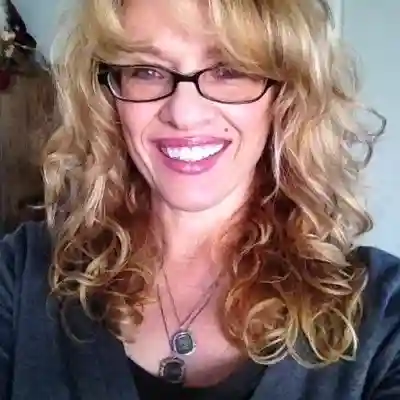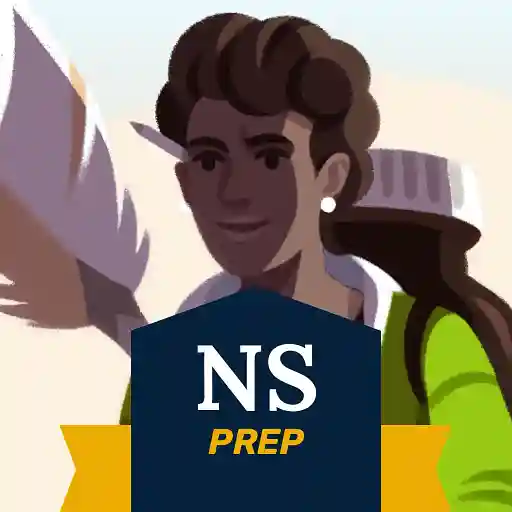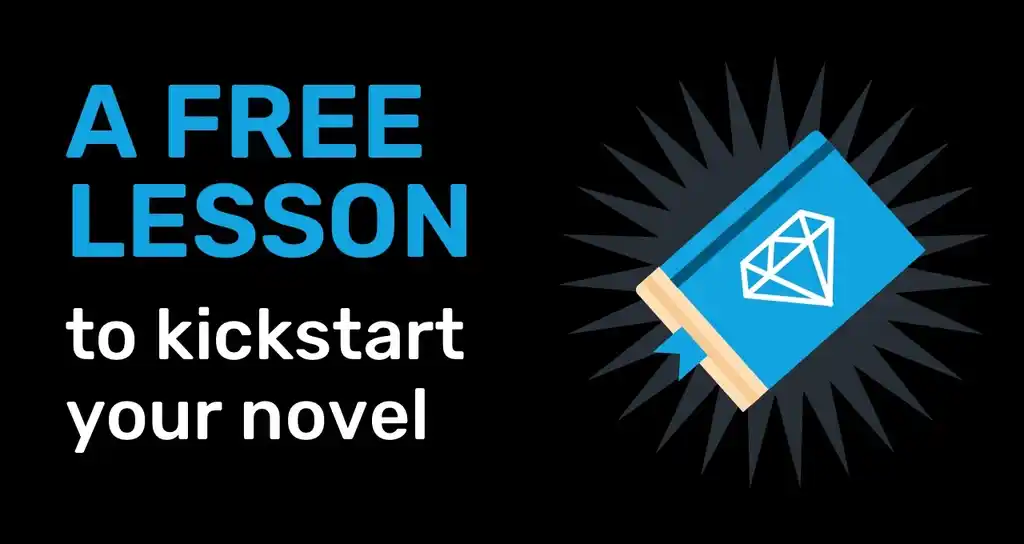How to Make a Literary Agent Read your ENTIRE Manuscript
14:00 EST - Jan 22, 2020
This transcript has been edited for length and clarity. Visit Jon's profile.
A bit of background...
I started off just doing some internships in college with small indie presses. I was an English and creative writing double major from the University of Michigan. I am at least a little bit of proof that an English major is not always going to end in tragedy, which many parents like to say. Yeah, I did small indie internships in college and kind of got my foot in the water there. I moved to New York to do the Columbia Publishing Course in the summer of 2014, which is just kind of a shorter, six-week, intensive publishing course that gives you the ins and outs of marketing, publicity, agenting, editing, sub-rights, all of that.
My first real job was at Penguin Random House where I was an editor for about five years working on all sorts of titles. I did a lot of nonfiction, a lot of serious nonfiction from academics, a lot of celebrity memoir, and then near the end of my time there, I branched out and I did some poetry books, I did some thrillers, I did some fiction, and now I'm an agent, where I represent kind of a little bit of everything, and also the same on Reedsy.
Overcoming that first barrier
Today, I'm going to be talking about how to hook a reader—ideally an agent or an editor, or even a beta reader—past those first few, early steps. A lot of people talk about the query letter is the first barrier that you have to overcome, and a lot of people talk about the first line of the manuscript and how you really have to snag a reader with that very first line. If you kind of fail on that front, then they might not get to the second line. Both of those things are very important, but I think something that people don't necessarily talk about as much are all the lines and all the pages that come after that.
You have a great query letter, and you have a great first line, but if you're not nailing those first five pages or 10 pages or 20 pages, you're still going to lose your reader. They're not going to continue and complete the manuscript.
A lot of agencies have different guidelines for how much they want submitted to them initially. Some agencies, it'll just be the query letter, and if they're intrigued, they'll request some pages. At Aevitas Creative Management where I work, we ask that you submit the first 50 pages with your query so that we can just dive in immediately if we're interested. You really want all of those pages honed and strong to keep the reader's attention. The first guideline I have, which is a little simplistic and bare bones, and I'm sure you all are aware of it already...
1. Write well
I know you're all groaning and thinking, "I know that already," but what I've found in my experience is that a lot of people pay a lot of attention to honing that first page, and a lot of the things that they're looking at in terms of dialogue and showing, not telling. You can tell that it slips a little bit as the manuscript goes on because a writer is working so hard at polishing that first page. Really, throughout the entire book, you just want to make sure to read your dialogue aloud. That's the easiest way to make sure that you're not stumbling over any lines and that it sounds natural coming out of a human's mouth, and you want to make sure that you, again, are showing, not telling.
To briefly recap show, don't tell: you never want to say of a character, "Jeff was angry." You want to show us that he's angry by saying, "Jeff felt his fists clenching by his side. He could feel the heat rising to his face." That's always going to be more interesting than just explaining to us an emotion or a state of being. Just make sure that you're keeping those in mind as you read the entire manuscript and not just those first early pages.
2. Start your book at the last possible moment
What this means is that you shouldn't be starting with exposition. Even if you're starting in an action scene, fast forward until the last possible moment that you can logically start your book. For example, I see a lot of thrillers come in both in Reedsy and as an agent where it'll kind of start with a hitman or a spy. Maybe he's perched on the edge of a building and looking at the scope of his rifle. The book will start something like, "He honed his scope, and the target was now clear," or you'll do some setup and say, "He had been tracking his prey or his quarry for weeks now, and the moment was finally here. He was going to make his move."
A lot of writers tend to think that that is sufficient because you're starting on the mission. The target's in front of him: that's the last possible moment. That is not the last possible moment.
Just think really briefly of the difference between the opening line, "He studied his target through the viewfinder of his sniper's rifle," versus, "He pulled the trigger."
That last line is inherently more interesting because it asks all the same questions as the first sentence. You're asking, "Who is he targeting? Why is he there? Who is this man? What is he doing?" but it also sets the stakes so much higher because now there's a gun that's been fired. "Who is he? Is he a good guy? Is he a bad guy? Who is he targeting?"
It just starts you off right in the middle of that moment of action. I don't know if you guys know or get these ads on YouTube for those MasterClass series where they have actors and chefs and writers and everyone giving these classes about their craft. The one that always gets me is this little sound clip of Margaret Atwood. She discusses this a bit and gives the example of Little Red Riding Hood. Obviously, it's a fairy tale, so the base-level story is going to have a certain formula, and I'm not critiquing the fairytale Little Red Riding Hood. But let's say you're retelling Little Red Riding Hood as an adult novel. What's more interesting? That set up where she's strolling through the woods with her basket and going to Grandma's house? Or the setup, as Margaret Atwood says in her video, starting the first line with, "It was dark in the belly of the wolf."
That's the last possible point that you can start the story of the Little Red Riding Hood. She's already been eaten. She's in the belly of the wolf. What's going to happen next? How did she get there? That's what I mean when I say that you want to pick the absolute last possible point in your novel and then move forward from there, even if it means killing your darlings, even if it means cutting some exposition because that leads into my next point.
3. Cut your exposition
A lot of writers love prologues. A lot of writers love worldbuilding, especially in genre fiction. I see a lot of this, especially in fantasy or sci-fi novels where there's an entirely new world and an entirely new structure that's being built and explained.
I will see it a lot where a writer will take the cue of having that punchy first line where maybe a princess or the hero has learned something, and it's this big, earth-shattering news. You think, "Oh my god. This is great. This is the last possible point the story can happen." We're introduced to this character as they're learning this life-shattering news!
Then the novel almost segues into that opening scene from Beauty and the Beast where Belle is running through town and saying hello to all of the villagers. It becomes that kind of exposition scene where the character will say, "I asked you to deliver this news to the council," and then run through the castle. Then the writer will describe the castle and describe, how the character is going to the council room because that's how politics work in this fantasy world. Or the character will be running along to deliver this message and think, "Oh my gosh, I need to tell my handmaiden, Rachel, this because she is my council, and I tell her everything."
They'll use those moments between, "bang! the novel starts" and, "bang! the continuation of the plot" to describe the world and to get the reader used to all the nuances of this new world. I totally understand that impulse. You definitely, especially in sci-fi, do not want to drop the reader into your world with zero explanation — especially if there's stuff going on like zero gravity. Or maybe it's on Mars, or there are several different alien races now on earth. But you need to sprinkle that out throughout the book and throughout the plot. It can never be the primary reason that you're describing something.
Here's a fix for that scene. Instead of the character learning this earth-shattering news and running to the council, you start the book with the character bursting into the doors of the council and saying, "I've just learned this news," and the council reacts.
Maybe as the council reacts, you can add a little bit of an exposition there. Maybe one of the counselors can say, "This is the first time this has happened since we became a democracy 10 years ago," (That's obviously a clunky example, coming up with that off the top of my head.) Or maybe one of the counselors says something and the fan on his head rises up because this is Sci-Fi, and he is an alien species. It's just kind of thrown in as a descriptor.
There are ways to sprinkle in those descriptors throughout the actual plot so that the reader becomes aware of it, but that's not the point of the writing. It's seasoning rather than the dish itself.
It all kind of comes down to this: readers are generally a little smarter than writers expect them to be. They can usually tread water and not know exactly what's going on or exactly the world they find themselves in for longer than writers think they will. As long as they're engaged in what's happening, they don't need all of that world-building answered immediately.
4. Keep your POVs consistent
Another thing that I notice a lot of writers do, especially in those first few pages, is either inconsistent voices or POV switches. Obviously, a big no-no is switching points of view without a paragraph break or a chapter break in between. That's where, in one paragraph you're in Kylie's head, and then in the next paragraph, you're in Jeff's head.
You always need a distinct paragraph break or a chapter break if you're going to switch POVs. But I'm going to encourage you not to switch points of view because you are setting yourself an incredibly high bar: each of those character views needs to feel unique and distinct. They have to have their own way of speaking. They have to have their own way of thinking. You're in the head of an entirely different person. It can never read as the same writer just writing two different people because that's not satisfying — and that shows your authorial hand. That shows that we're not really in this character's head. We're being told the story by just one person.
If you're going to pull off that trick, the voices need to sound very distinct. Maybe one person is eloquent and talks and longer sentences and paragraphs, and maybe the other one takes more breath breaths and thinks in shorter sentences.
I'm not saying that you can't write from different characters' points of view, but I am saying that if you do, you really need to justify it, and you really need to make all of those different characters really distinct. Otherwise, it reads from an editor or an agent like you are stretching yourself a little bit too thin and that you're not completely in control of your craft in the way that it would need to be to be published material. Obviously, that's not what you are trying to impart in these early pages.
A quick side note...
I should add a caveat here for people who are probably thinking this: Yes, these rules are broken. Stephen King breaks these rules all the time, especially the breaks between points of view. He switches around all the time. Obviously, notably, George R.R. Martin. Game of Thrones has a lot of different point-of-view characters, and you can tell the difference between a Tyrion and a Daenerys, but some of them might not be as distinct as what I'm talking about here.
The rules can be broken. Stephen King and George R.R. Martin are the exceptions to the rule. They can break the rules because they are New York Times Best Sellers. They are not New York Times Best Sellers because they break the rules. I would, again, encourage you not to play it safe, but to be aware that you're an unknown author probably, and you're asking for a buy-in from an agent or an editor. You need to do as much work as you can to make them feel confident in your abilities and in your craft and like you're not overextending or overselling yourself. I just see a lot of writers who think they can tackle POVs, but they cannot, so just be careful with that.
5. Make everything support your thesis statement
Assuming that you have done all of this, and you have a great first chapter, and the agent is reading on into your second chapter, your third chapter, your fourth chapter, your fifth chapter, the start of the book is hard. I know as a writer the fun scenes are kind of the end scenes, the climax, the confrontation, the big scenes where things happen. A lot of the beginning of the book is honestly... things aren't being set up, and that's not the most exciting sense of, "Things are happening."
It can feel a little slow to write. It can feel a little slow to read. You still want to make sure that every chapter counts and that every chapter needs to be there.
I know this is kind of an academic term for nonfiction books, and you'll probably remember it from when you were in school and you were writing papers: the thesis statement. I like to give pretty much all of my clients—whether it's for a Reedsy project or as an agent—the homework of assigning their book a thesis statement. I get them to keep that on a Post-it Note or something above where they write. That thesis statement can be very simple, but it's what your book is about.
If you're writing a YA book, the thesis statement can be: "This book is about Joan trying to prove her parents wrong and get on the honor roll."
Or if you're writing fantasy, the thesis statement could be, "This book is about Byron reclaiming his rightful throne and overthrowing the man that killed his father."
It shouldn't be longer than one sentence, a description of what your book is about.
Then go through and plot out chapter-by-chapter how every part of your book furthers that thesis. Your thesis is the big puzzle and every chapter should be an integral piece that adds up to that final picture. There shouldn't be any extra pieces or a piece that you don't really need. There shouldn't be a chapter that you're looking at and think, "Well, this chapter is important because it explains who this character is and what their relationship to the main character is, but it doesn't really advance that thesis plot."
Find a way to explain that relationship and establish that relationship in other chapters while you are furthering the plot. I find that even if you have a dynamite first chapter, those next few chapters after that are the ones that writers tend to spend a lot of time on (again) world-building and a little less time advancing the thesis of the book. You just want to make sure that every word and every chapter is important, that it matters and that it counts.
As an additional exercise, I would encourage you to take a comp title for your book or the book that you really want your book to be or just even one of your favorite books. It doesn't have to be a direct comparison to the one you're writing. Do the exact same thing.
Write down, "What is the thesis of this book, and how does every single chapter advance that thesis?" Do it for a published book, and see how they do it. As a publishing professional, I'll be the first to admit that there are probably some published books that get away with some of those flabby chapters. Again: exception to the rule. You can kind of do it if you're a published author and have that buy-in already from publishing professionals, but as the unknown quantity, you want everything to be as tight and as sharp as possible. That's kind of the classic homework assignment I like to give a lot of my writers to work on.
A few tips for nonfiction
Those are the main kind of four for fiction. I just have a few briefer points. If you write nonfiction, either you're an academic and you're writing a research book or an essay collection, or you're writing a memoir, the same honest, basic principles kind of apply. You want to be very clear what the hook is, what the thesis is, "Why is the reader going to pick this book up? Why does it matter?"
If you're an academic, and you are looking for a big trade publisher like, say, Penguin Random House or Simon & Schuster, Hachette, HarperCollins, Macmillan, that kind of thing, you need to make an argument about why your book changes the world, in some way. If it's history, you have to say, "This is an untold story about the American Revolution, and exposing it shows how this changes our perception of the American Revolution," or, "This research about happiness changes the way that we think about success."
That's kind of what the big publishers look for in a proposal. That's not to say that if you have an interesting story, it will not be published. I have read a lot of great biographies of people who did not necessarily change the world but just had really good stories. Those can still be published. Those will probably be published more by indie or university press publishers rather than some of the big ones. That how-it-changes-the-world hook is really important to the big five.
Then I would say from an essay collection or a memoir, you really need to emphasize what makes this story unique. There's a lot of hesitancy from readers to buy into a memoir because a lot of readers think, "What makes you so special? Why am I spending money to read about your life when I have my own life that I'm living?"
Obviously, if you are Jennifer Aniston and you want to try to memoir, you don't even make that case because everyone's aware of how Jennifer Aniston is different from the average reader. But if you are somebody who's writing about the loss of a child or a parent—or maybe you work in this crazy place that people don't know about, you need to make that case early and clear and fast. "Yeah, I'm a normal person, but this is why you should be interested in reading my story," and then... so:
- Hook,
- Why you? and
- How it changes the world.
Those are just some basic guidelines for nonfiction projects.
Good practices
I've talked a lot about what to do that's not so great. I just want to emphasize the things that are really good to have in your early chapters.
Clear stakes
Again, make sure that we know what the character wants, what drives them, what they want to achieve, and what happens if they don't get what they want. Maybe they won't go to college. Maybe they'll flunk out of high school and all their friends will be assassinated. (Obviously, I'm switching genres here. I hope that there's no assassination in traditional YA.)
A clear voice
People want to get a clear sense of who your character is, how they talk, how they think, what makes them different from other writers and other characters. You want to set the plot clearly and make sure that it advances forward with every chapter and that every chapter is integral to reaching that end goal. There's not any wasted breath or wasted words.
Jon Darga still works as an editor through Reedsy. To collaborate with him on your book or query letter, visit his profile and send him a request.





